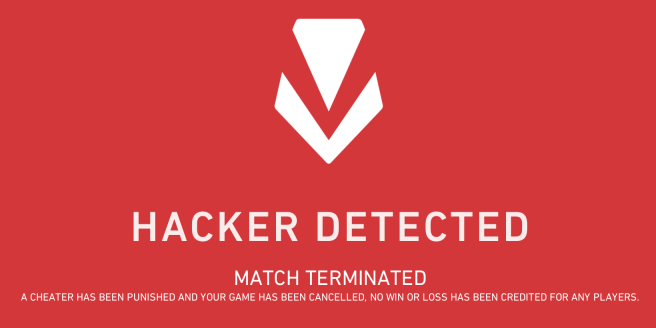Chunai Updates
Your go-to source for the latest news and insights.
Cheat Detection: The Invisible War in CSGO Anti-Cheat Systems
Explore the hidden battle against cheating in CSGO. Discover how anti-cheat systems are evolving and what it means for gamers today!
Understanding CSGO Anti-Cheat Systems: How They Work Behind the Scenes
Counter-Strike: Global Offensive (CSGO) is not just a test of skill; it's also a battleground against cheats and hacks. To ensure a fair playing environment, CSGO anti-cheat systems work tirelessly behind the scenes. At the core of these systems is VAC (Valve Anti-Cheat), which scans for known cheats and maintains an up-to-date database to detect any abnormalities in gameplay. When a player is caught using a cheat, they face permanent bans. Moreover, the system employs a heuristic analysis to identify new hacks that may not yet be in their database, making it incredibly robust against evolving cheat technologies.
In addition to VAC, CSGO implements a series of server-side checks to analyze player behaviors that deviate from the norm. This includes monitoring player statistics, kill-to-death ratios, and movement patterns. If a player's actions seem suspicious, they may be subject to further scrutiny by community reports or third-party services that specialize in cheat detection. These collective measures ensure that even the most sophisticated cheats can't easily infiltrate the game. Understanding how CSGO anti-cheat systems operate is essential for players who are committed to fair and enjoyable gameplay.

Counter-Strike is a popular tactical first-person shooter that has captivated gamers worldwide. Players are divided into two teams, terrorists and counter-terrorists, where they compete to complete objectives or eliminate the opposing team. One exciting aspect of the game is the diverse range of skins and weapons players can acquire, including the operation vanguard weapon case, which offers unique items to enhance gameplay aesthetics.
The Evolution of Cheat Detection in CSGO: Past, Present, and Future
The evolution of cheat detection in CSGO has been a critical aspect of maintaining fair play within the game. In its early days, the measures for detecting cheats were rudimentary, relying largely on community reports and simple anti-cheat software. Valve's introduction of VAC (Valve Anti-Cheat) was a significant turning point that allowed for more automated detection of known cheats. Over time, as cheating methods became more sophisticated, so too did the techniques employed by Valve. They began implementing more advanced algorithms that not only identified cheat signatures but also analyzed player behavior for anomalies, ensuring a more comprehensive approach to cheat detection.
In the present, cheat detection in CSGO has reached new heights with the integration of machine learning and data analytics. These technologies enable real-time detection of suspicious activity, adapting to new cheating techniques as they emerge. The introduction of tools like Trusted Mode has further fortified the game's integrity by limiting the use of third-party applications. Looking to the future, it is expected that cheat detection will continue to evolve, incorporating even more sophisticated AI-driven solutions and perhaps even player reporting systems that leverage community vigilance. As the landscape of competitive gaming grows, so does the necessity for robust measures to uphold fairness in CSGO.
Common Myths About CSGO Cheating: What You Need to Know
Counter-Strike: Global Offensive (CSGO) has long been a popular title among gamers, but with its popularity comes a myriad of *myths* about cheating within the game. One common myth is that only new players resort to cheating to gain an advantage. However, cheating in CSGO can be found across all skill levels. Experienced players might cheat to maintain or elevate their rank, but their motivations can range from frustration to the desire to showcase their skill through unfair means. This misconception only fuels the confusion about who cheats and why, ultimately impacting the gaming community and its integrity.
Another prevalent myth is that cheating can be easily detected and punished by game developers. While game developers like Valve implement anti-cheat measures, these systems are not foolproof. Cheaters are constantly evolving their methods, which can make detection challenging. Moreover, players often assume that reporting suspected cheaters will automatically lead to penalties. In reality, it can take time for investigations to verify claims. Players must stay informed about the realities of CSGO cheating to understand that it's an ongoing battle and not a straightforward issue.